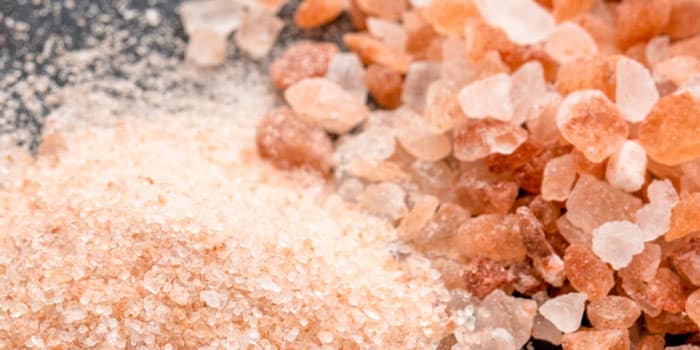Fasting is one of the best things you can do for your body. It brings multiple benefits for your health, fitness and overall well-being.
But there are many myths associated with fasting that tend to scare people away.
Let’s put some of those myths to rest!
Fasting Myth #1: I will feel extremely hungry all the time
We get it, hunger is uncomfortable.
Yet, this is not how most people experience fasting.
Research suggests that people generally feel less hunger when fasting.
Here are the facts:
- Hunger is not constant. It comes in waves and often goes away completely.
- Fasting decreases hormones that drive hunger.
- Autophagy and ketosis suppress hunger
- Regular fasting will reduce your appetite over the long term
Fasting Myth #2: Fasting is a fad
No, fasting is not a fad. It’s not even a diet. It’s a way of life.
Think about it:
- Humans have practiced fasting for thousands of years
- Our hunter-gatherer ancestors typically had periods of feasting, followed by long periods of fasting
- Fasting is natural to the body: we fast when we sleep, and when we’re not feeling well we usually don’t want food
Fasting Myth #3: Fasting will deprive my body of nutrients
Nope. The only nutrients required during fasting are electrolytes.
Consider the following:
- Most of us have plenty of nutrients stored in our bodies
- What you don’t get with food, your body will take from stored fat
You will need to replenish your electrolytes – sodium, magnesium, and potassium.
You can also take a multivitamin if you’re concerned about losing nutrients.
Fasting Myth #4: Fasting will deplete my muscle mass
Not true.
Your body is smarter than this! It will not burn muscle when stored fat is available.
Facts:
- The body first uses up stored glycogen
- Next, the body turns to stored fat for fuel (Yay!)
- Muscle loss would only occur if there were no body fat to burn (in which case you should not fast)
- Human Growth Hormone increases during fasting
Fasting Myth #5: Fasting will make me tired and lethargic
The opposite is true.
Most people who fast experience increased energy.
If you do feel tired or lethargic, check the following:
- Electrolytes: you need sodium, magnesium, and potassium
- Water: aim for around 64 ounces of water a day and after that drink to thirst
- Sleep: are you getting enough sleep?
Fasting Myth #6: Fasting will cause overeating afterwards
It can happen at first, when you’re new to fasting.
You might feel as if you need to “make up” for when you fast.
But once you get used to fasting, that will level off.
Some days you will eat more, and some days less. But it should even out.
Keep the following in mind when refeeding:
- If you are intermittent fasting, keep your eating window short
- Always eat till satisfied
- If you are doing extended fasting, do a slow, gentle refeed for half as many days as you fasted
- Remind yourself that food is always available
- If you have a binge eating disorder, you should not be fasting
Fasting Myth #7: My hair will fall out
While some people do experience hair loss, this is not limited to fasting.
Hair loss can happen anytime you’re losing body fat.
The good news is that in most cases the hair comes back healthier than before.
A few things that can help:
- Take our Hair Defence formula
- Take a few tablespoons of fat a day, it won’t break your fast
- Rub coconut oil into your scalp one or two nights a week and wash the next day
Fasting Myth #8: Fasting will ruin my metabolism
This one gets around a lot. But it’s not true.
The reality is that fasting actually boosts the metabolism.
Here are a few things that DO slow down the metabolism:
- Years of yoyo dieting
- Obesity. Fasting will fix that!
- Not getting enough sleep
- Eating too little when you break your fast. Always eat till satisfied. Never restrict calories on purpose
Fasting Myth #9: Fasting will put my body into starvation mode
Diets and calorie restriction cause starvation mode, not fasting.
Eating nothing (fasting) is not the same as eating a little.
A few things to remember:
- Fasting is not the same as dieting
- Fasting is not calorie restriction
- Starvation mode can only happen when food is your source of fuel. With fasting, fat is your fuel.
Fasting Myth #10: Women should not fast
This is one of the worst. And there is no truth to it at all.
Fasting is excellent for women’s health.
Here are some of the great things women experience with fasting:
- Healthy weight control
- Balanced hormones
- Better mental health
- Better metabolic health
- Reduced risk of heart disease and cancers
- Better reproductive health
The only exceptions are if you are pregnant, lactating, or actively trying to conceive. Your baby does need nourishment for growth so fasting is not recommended.
Try fasting for yourself!
We hope that you won’t let the myths scare you away.
Take advantage of fasting and all the wonderful benefits that it offers.
Happy Fasting!
Author: Roo Black

Roo is a fasting coach with over 5 years of experience. She leads the admin team of the Official Fasting for Weight Loss Facebook group – one of the largest fasting communities on social media with over 125,000 members. We highly recommend this group for anyone who is looking for fasting advice or coaching.

